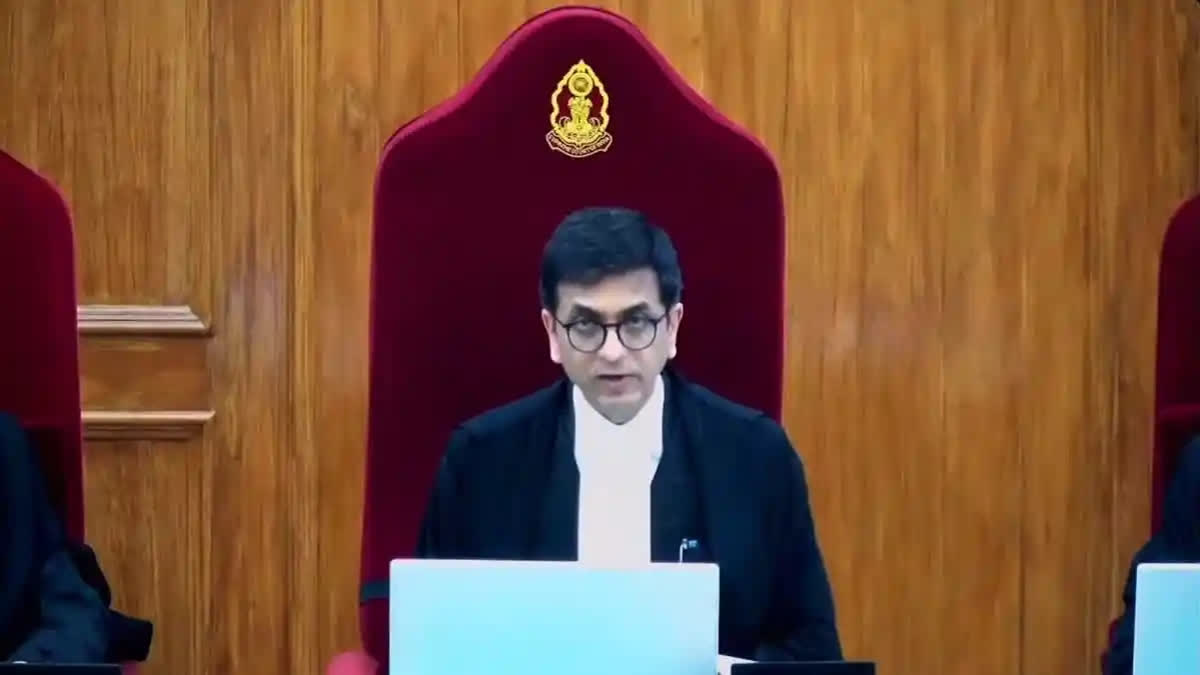New Delhi: The Chief Justice of India D Y Chandrachud on Monday shared with members of the Bar, in a lighter vein, how the ushers ask the judges to maintain order of seniority while entering a courtroom.
In a landmark judgment, a seven-judge bench led by CJI ruled that lawmakers in Parliament and state legislatures are not immune from prosecution in bribery cases. The apex court set aside a 1998 judgment in which a five-member Constitution bench had upheld the immunity for lawmakers in cases where MPs or MLAs take bribes for a speech or a vote in the House.
After pronouncing the judgment, the CJI told senior advocate Raju Ramachandran, representing a party in the matter, that there is little aside which he will share with the members of the Bar.
The CJI said, “Now I tell you a little aside, when we (the judges) sit in a bench of five, or two or three. When we enter the court, the usher will always tell us who has to go inside the court first”
“In some court the senior goes first, in some court the junior goes first….in combination of five, seven, and nine, it becomes a little more complex. So when the nine of us assemble….and there is a lead usher who says 'pehle aap jayenge (first you will go)'…”. The CJI, wearing a smile, said, “we all stand in that order subject to the usher’s command and we go in that order into the court”.
Senior advocate Raju Ramachandran, representing a litigant, said one of the few members of the Bar who had seen Kesavananda Bharati case being argued as a student there was great sequence as the judges came.
Read More



